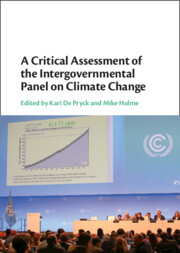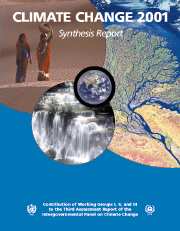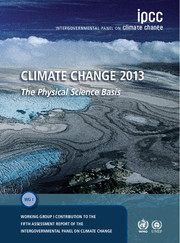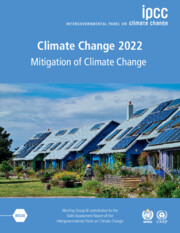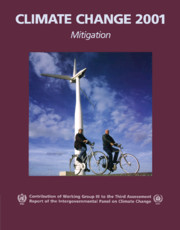A Critical Assessment of the Intergovernmental Panel on Climate Change
The Intergovernmental Panel on Climate Change (IPCC) has become a hugely influential institution. It is the authoritative voice on the science on climate change, and an exemplar of an intergovernmental science-policy interface. This book introduces the IPCC as an institution, covering its origins, history, processes, participants, products, and influence. Discussing its internal workings and operating principles, it shows how IPCC assessments are produced and how consensus is reached between scientific and policy experts from different institutions, countries, and social groups. A variety of practices and discourses – epistemic, diplomatic, procedural, communicative – that make the institution function are critically assessed, allowing the reader to learn from its successes and failures. This volume is the go-to reference for researchers studying or active within the IPCC, as well as invaluable for students concerned with global environmental problems and climate governance. This title is also available as Open Access via Cambridge Core.
- Provides insights from different perspectives into the inner workings of the IPCC exploring what it is and how it works
- Analyses IPCC practices using key concepts in science, and technology studies, and political science, showing how they are tightly embedded into the work of the IPCC
- Critically assesses the achievements of the IPCC and highlights the challenges it faces in order to remain credible and legitimate to a range of political actors
- This title is also available as Open Access via Cambridge Core
Product details
December 2022Hardback
9781316514276
350 pages
250 × 175 × 25 mm
0.77kg
Available
Table of Contents
- 1. Why The Need For This Book? M. Hulme and K. De Pryck
- Part I. Governance:
- 2. Origin And Design T. Skodvin
- 3. Procedures O. Leclerc
- 4. Venues F. Hartz and K. De Pryck
- 5. Reports J. E. Livingston
- 6. Learning S. Beck and B. Siebenhüner
- Part II. Participation:
- 7. Participant Diversity A. Standring
- 8. Early Career Researchers K. M. Gustafsson
- 9. Governments H. Hughes
- 10. Observers Y. Yamineva
- 11. Peer Review P. N. Edwards
- Part III. Knowledges:
- 12. Disciplines A. C. Petersen
- 13. Indigenous Knowledge Systems B. Van Bavel, J. Petrasek MacDonald and D. Sambo Dorough
- 14. Climate Models H. Guillemot
- 15. Scenarios B. Cointe
- 16. Controversies S. Asayama, K. De Pryck and M. Hulme
- Part IV. Processes:
- 17. Uncertainty J. O'Reilly
- 18. Integration M. Vardy
- 19. Scientific Consensus-Seeking M. Hulme
- 20. Governmental Approval K. De Pryck
- 21. Policy Relevance And Neutrality M. Mahony
- Part V. Influence:
- 22. Political Context R. Lidskog and G. Sundqvist
- 23. Civic Epistemologies J. C. H. Miguel, R. R. Taddei and M. Monteiro
- 24. Boundary Objects B. Lahn
- 25. Visuals I. Lorenzoni and J. Harold
- 26. Communications W. Pearce and A. Lindemer
- 27. Re-Imagining The IPCC: A Proposal C. A. Miller
- 28. What Has This Book Achieved? K. De Pryck and M. Hulme
- References
- Index.

